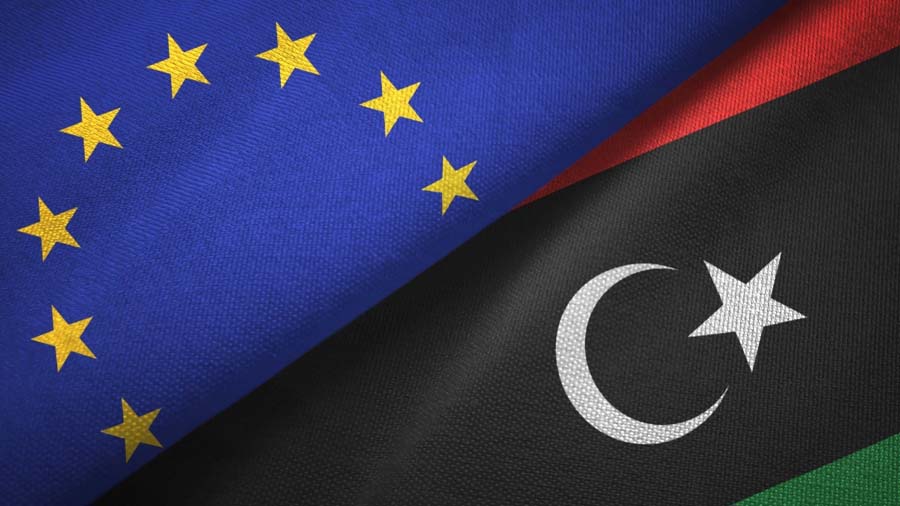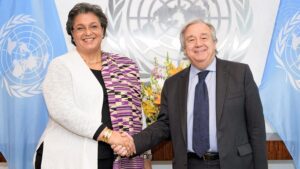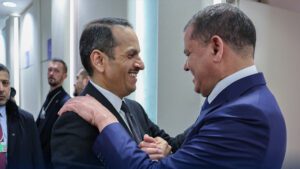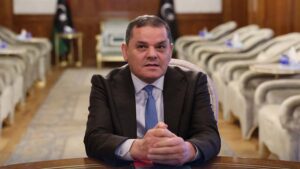The European Union (EU) said in a statement that the two-day meetings in Tripoli of EU Ambassadors and Heads of Mission accredited to Libya, including those based in Tunis, offered an opportunity to engage in productive exchanges with the Chairman of the Presidential Council and the Prime Minister on Wednesday, as well as the meeting on Thursday with the Chairman of the High National Elections Commission (HNEC).
“We acknowledge our common interest in a stable, secure, united and prosperous Libya. The European Union stands ready to assist Libya in its efforts to achieve peace and stability across the country. The European Union is actively pursuing a diplomatic engagement to support our shared democratic values and principles of democracy and human rights, rule of law, good governance, market economy principles and sustainable development.” The EU said.
It added that Libya marked on June 26 the tenth anniversary since the last election of the House of Representatives, saying that it reiterated support for renewing the legitimacy of all Libyan institutions throughout the country, adding that the Libyan people have the right to choose their own leaders.
“In this context, we welcome the beginning of registration for the municipal elections and we support HNEC’s capacity and operations. We hope municipal elections can be an important preliminary step towards national elections. We encourage all relevant authorities and stakeholders to ensure that municipal elections proceed smoothly and safely across the country and to support HNEC, be it in terms of funding, logistics, or security.” It indicated.
The EU said it was convinced that the UN mediation aimed at an inclusive political solution remained the best approach to preserve the unity of Libya and ensure that all citizens, including women and youth, can realise their whole potential and thrive.
“We support UNSMIL’s efforts to revitalise the political process and we share DSRSG Koury’s concern about the de facto division of the country and parallel governing institutions. We call on all Libyan stakeholders to genuinely support and promote UNSMIL’s efforts.” It said.
The EU added that it stands ready to support the effort by all Libyan leaders to adopt and implement a unified national budget that ensures the transparent and accountable allocation of resources. It reiterated its availability to support such effort, including by promoting a revival of the Berlin Process’ Economic Working Group together with the other co-chairs.
“We encourage all concerned institutions to work closely with the Economic Working Group in the months ahead. The European Union will continue to work with Libyan stakeholders towards strengthening civil society, human rights and free media, democratic governance, youth empowerment, and women empowerment and inclusion.” The EU added.
It said it valued Libya as a Mediterranean partner in the framework of the European Neighbourhood Policy and a reliable energy partner. It also said it shares Libya’s goal to regulate and manage migration and borders effectively and in a manner compliant with human rights and international standards.
“We welcome our increased dialogue to achieve this goal. We see the planned Trans-Mediterranean Migration Forum on 17 July as a key moment to take decisive steps and produce concrete outcomes. To continue and strengthen our dialogue and cooperation, we call for factual progress in pursuing alternatives to detention, and simplified exit procedures leading to enhanced voluntary returns in cooperation with countries of origin; in border management and improved cooperation with UN Agencies; and in enhanced protection of migrants and refugees.” It remarked.
The EU also indicated that it is also willing to support the regularisation of immigrant workers, saying: “In the run up to the conference, we stand ready in particular to support progress with regards to the transfer of children from detention centres to appropriate shelters, the exit visas requirement for migrants, and the activation of the MRCC donated by the EU.”





